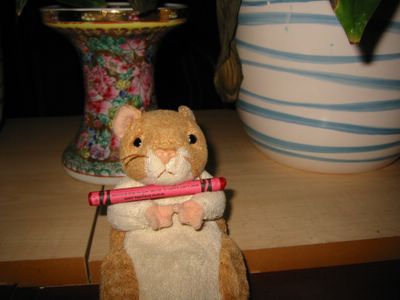There was a conspicuous dearth of English literature in my education. In high school, we were taught the basics and rigors of the structure and grammar but on the literary side almost all the short stories, plays, and poems we discussed were third-world centric. Works by noted Filipino writers like Nick Joaquin or other Asian or African authors (all of which I can't remember now) were what we read and discussed. Nothing wrong with that in fact I got to appreciate that English writing talents also exists in these non-English-native-speaking countries. My college English lessons, on the other hand, were all single-mindedly directed towards technical writing. No flowery words or langous description, everything is precise, measured and concise. That definitely killed the writer in me that was budding in my first year in high school.
In the light of this, I've always longed for knowing all these English classics that are often quoted, referred to, or alluded to by a lot of writers that I planned on reading them one by one 'til I keel over from old age. This spurred my initial headway in collecting classics like Jane Austens novels. I tried reading some Shakespeare but the olde English gave me a headache! Most of the time I couldn't make heads or tails of what he's trying to say. If I constantly refer to annotations it inevitably banishes the fluid poetry of the magic of words. Half of the greatness of works of art is in the appreciation of people. If I can't understand what the writer wants to say it's a cinch I wouldn't enjoy it and what good is a piece of writing if nobody can understand or relish it.
I picked up my first Jane Austen when I was about 15, when a cousin pressed a copy of Pride and Prejudice in my young hands. At first I found the Victorian language tedious but as I got used to it I excitedly reveled in the mellifluous witty funny prose of Miss Austen. After several decades, it's only now that I picked up another Jane Austen - her first novel Sense and Sensibility.
What struck me in that novel was how everyone wass obsessed with money or how much money someone has. Although arguably, the Dashwood sisters put a higher premium on love, honor, and integrity. But still at the back of their romatic minds they cleverly calculate if their inamorata has enough money to allow them to live decently. I can't blame them since at that time (mid-1700s) middle to upper class women are not allowed to work. It is virtually a social suicide if they as much as expend any energy in earning money. So all their lives (in my opinion) were spent in idle talk and gossip and frivolous things besides the management of the household which I think was the only practical thing they do and even with that they have servants to do everything for them. I don't know, I think I'll be bored to death if I were living as a woman in England during that time.
select * from thoughts_array where it_contains = 'diary' or consists_of = 'travel';
About Me
Friends & Favs
- My Food Blog
- Ajay's Writings On The Wall
- AMoores
- April Journeys
- Baby Rambutan
- Beautiful Mind
- the Best Thing In Life Is Free
- Buddha Dharma
- Crystalinks
- Dagboek van Thesserie
- Deja Brew
- Euphonies In My Solitude
- Kwentong Tambay
- Manilena
- Mec As Mom
- Mecomposing
- MissT-The DutcheD Pinay
- My Hideaway
- Now What, Cat?
- Our Kitchen
- Pansitan ni Ate Sienna
- Parallel Universes
- Pinay Expat
- Sassy Lawyer
- Serendipity
- Tagay Mo Pre!
- Turo ni Tito
- The Walk Of Ten Thousand Steps
- Wifely Steps
- Writings On The Wall
Contact
Labels
celebrations
computers
concerts
education
everyday life
family life
festivals
friends
gifts
health
humour
literature
Litratong Pinoy
movies
music
musings
news
pets
photography
rants
raves
relatives
reminiscing
science
sports
techie
theatres
Travel - Europe
Travel - London
Travel - Philippines
Travel - Switzerland
Travel - UK
TV shows
work
Friday, October 28, 2005
Subscribe to:
Post Comments (Atom)




No comments:
Post a Comment